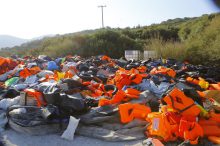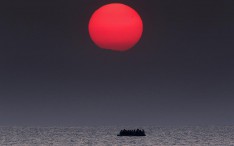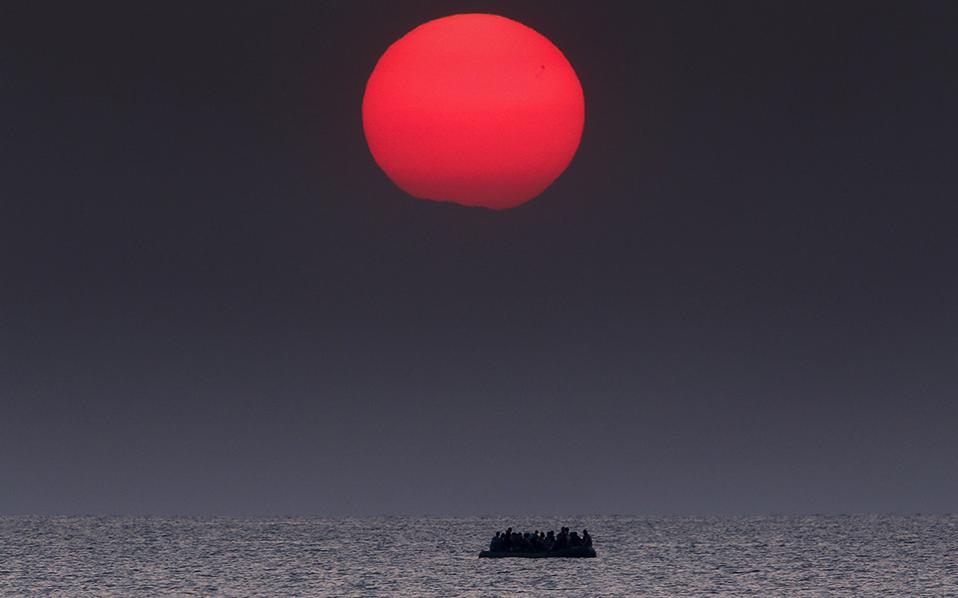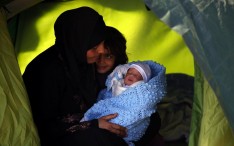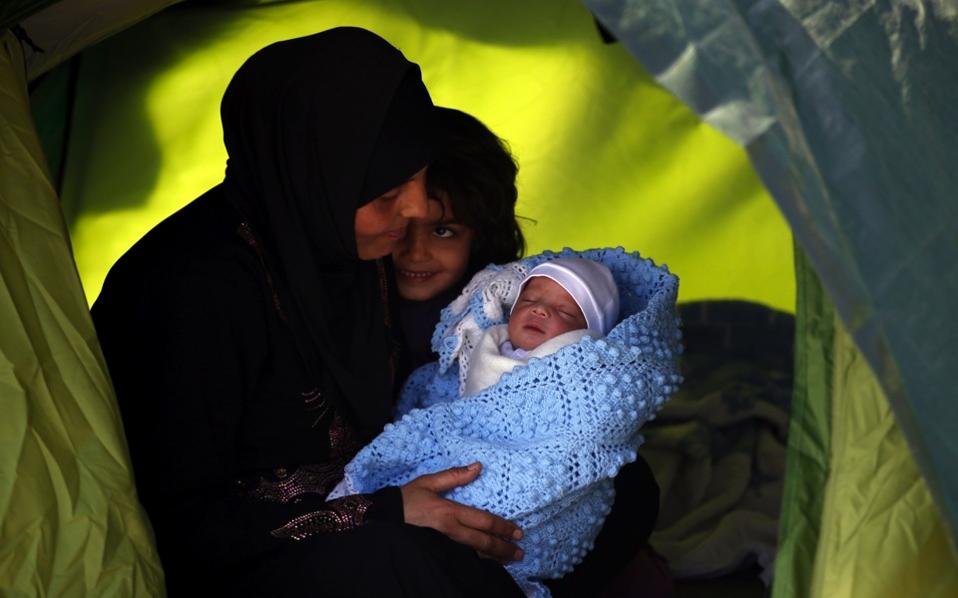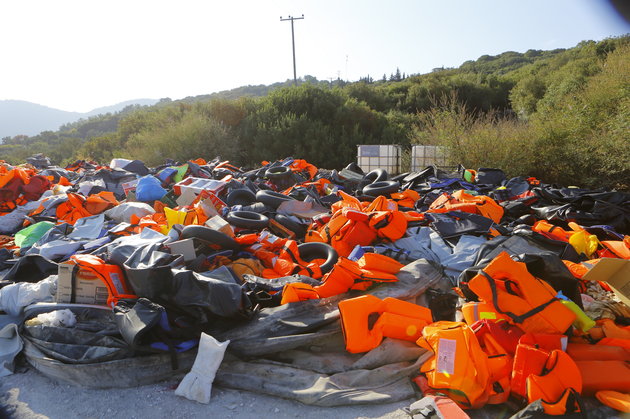 Life jackets are a poignant symbol of the refugee crisis in Greece. Thousands of them which had been abandoned on the beaches of Lesbos are now giving life to a new project which will help the people who once wore the vests while also addressing a huge environmental problem.
Life jackets are a poignant symbol of the refugee crisis in Greece. Thousands of them which had been abandoned on the beaches of Lesbos are now giving life to a new project which will help the people who once wore the vests while also addressing a huge environmental problem.
Jai Mexis and his partner Irene Psifidi returned home to Greece after university in the UK with a desire to help and have founded Odyssea. It is an NGO which aims to find a long term solution to the thousands of abandoned life jackets.
“The whole story started very spontaneously, when I visited Lesbos. I tried to find a solution to the environmental problem. It was more of an experiment. An attempt to show that young Greeks can return to their country, that we can create something, even from garbage,” explained Jai Mexis.
The beaches of Lesbos are where thousands of refugees first land. Their life jackets are left abandoned in the sand. In Turkey the vests can cost anything between 50 and 200 euros. Many of them are not fit for purpose.
Jai Mexis was serving meals to refugees with a volunteer group on Lesbos when he began creating temporary shelters out of flotsam and jetsam from old boats. Thus an idea was born.
Now his NGO runs workshops with refugees and volunteers, where they create bags and mattresses which provide immediate relief to refugees.
He is joined by volunteers, many of them refugees who are living in shelters in Athens.
“At first, refugees do not speak. They are afraid as they don’t know what they will face. Of course, they are familiar with the life jackets, they have used them to get here from Turkey. To some extent, they have overcome this dreadful experience and want to experiment with them,” Irene Psifidi the NGO coordinator told Euronews.
Roheen Muradi from Afghanistan lost his mother in the Aegean Sea as they tried to get to Lesbos from Turkey. Fourteen refugees were on the boat, 11 drowned, his mother was among those who perished.
“When I see the life jacket, I become so sad and I start to cry. In this life jacket I see my mother. When the Greek coast guard rescued some of us, they told me that they couldn’ t find my mother. They couldn’t find her body in the sea,” he recounted.
The many items created here are sold to generate funds for both refugees and locals on the Greek islands. One of the ambitions is to raise enough money to buy a mobile medical unit for the people of Lesbos. Next month all the products will be available online.
Euronews correspondent Apostolos Staikos reported from Athens:
“And this is just the beginning. The aim is to start a small factory in Lesbos, which will create bags and other items from the abandoned life jackets. If the plan goes ahead, 50% of the employees will be locals and 50% refugees. For this to happen, refugees must obtain the right to work in Greece”.
